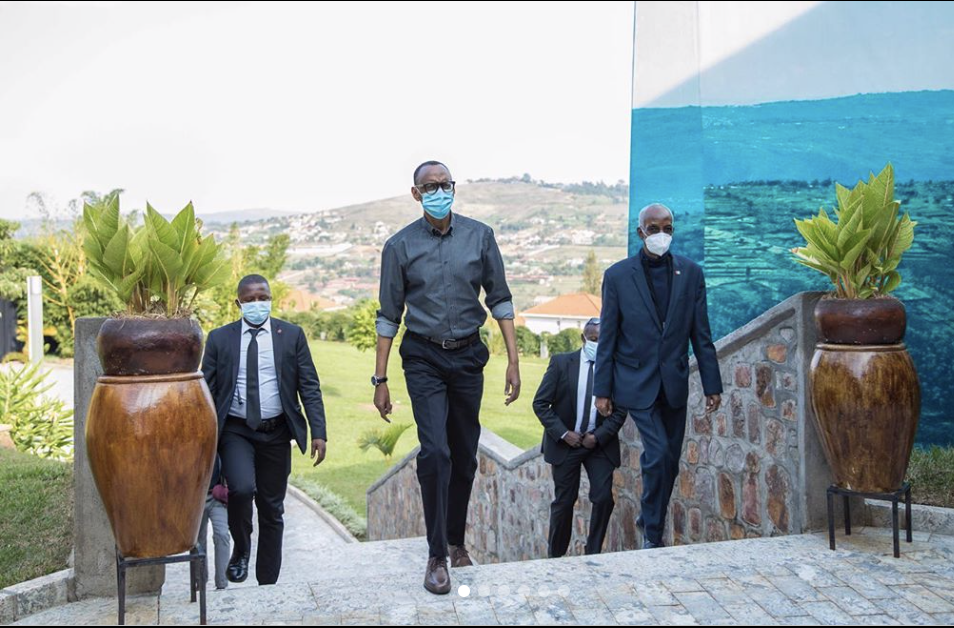Last Friday marked, in my opinion, a turning point in the life of the Rwandan Patriotic Front (RPF). Many of us were still young during the 1996-1997 Kicukiro I and II defining meetings that set the RPF on its current governance course. After running these few miles, it seems the time has come to service the engine and refresh cadres’ commitment to the movement’s ideals.
In typical RPF style, a candid and transparent court was held, much similar to traditional ‘Gacaca’. Those suspected of stealing were brought forward, questioned and reprimanded while criminal investigations are to follow. Young people were invited to witness the process and be empowered to resist ill-intended injunctions from senior cadres.
Auditor General (AG) Obadiah Biraro finally had his moment. After years of preaching in the desert, it turns out the patient man had kept all the invoices and waited, in the cold, for judgement day, whence he’d be called upon to produce the bill of charges, at last… ‘Names are on Annex 3- A and B of page 167’, he said of one case on top of his mind with typical precision. I suspect a team from the AG will be seconded to the Rwanda Investigation Bureau (RIB) to help go through reports and draw indictments.
For the first time, the meeting concluded that culprits report to RIB the next day and others immediately detained – or rather on Monday, to allow them a last supper with family and friends. Others were put on notice but aren’t out of the woods just yet. At each stage of the discussions, the president consulted with the minister of justice to ascertain the process was observant of the letter of the law.
The Rwandan system isn’t given due credit, but it is one of very few in the world where accountability at the helm of government is routine. In most countries, state capture is what’s routine. Ministers, heads of governments and senior officials are allowed to serve out their terms, run and win new ones, at times retire in peace with countless embezzlement cases pending on their heads, seldom seeing their day in court. Two weeks ago the justice department of a western country revealed the frustrations encountered while investigating a former head of state. His former prime minister caught red-handed remunerating his spouse with public funds was never detained nor charged; closer to home, the unprecedented trial of the president’s chief of staff in a neighboring country was broadcasted live on television, citizens just couldn’t believe it.
In Rwanda however, ministers, governors, heads of agencies, army and police chiefs are routinely investigated, moved or sacked. Public servants know that they must observe legal procedure for every tender, sign performance contracts with the president and declare personal wealth to the ombudsman annually.
Why such rigor? As the president pointed out, Rwanda is a landlocked, densely populated country with little natural resources. We cannot afford to act as though we were a rich country, we must manage public resources parsimoniously, for there isn’t plenty to go around. Seen in this prism, embezzlement isn’t only a crime, it is an act of self-denial.
In an article titled: ‘A strong man building strong institutions in a weak society’ and the subsequent book Transforming Rwanda, author Jean Paul Kimonyo details the hardships spanning two decades which the RPF and its chairman had to go through to fight off and root-out corruption, first in the party and ultimately the country. He also mentions the enemies created as a result. Exiled former leaders who were fired for corruption tell foreigners that transparency in Rwanda comes at the cost of freedom. In reality, they are invoking their own turpitude.
And facts speak for themselves: for Kagame’s entire presidency, Rwanda has ranked top on all anti-corruption indexes in Africa and on most efficiently run governments globally ahead of household names such as Switzerland, Denmark and Sweden and with no oil, nor gold, maintained a 7% GDP growth for the last fifteen years, among the fastest on the planet.
Figures aside, Rwanda is a welfare state where education and healthcare are subsidized by the government and vulnerable people assisted through direct cash payments, livestock, housing and micro-credit; to quote development economist Sir Paul Collier, “Rwanda has achieved a ‘developmental hat-trick’ of rapid growth, sharp poverty reduction and reduced inequality”.
‘We have two pandemics, the president declared: the COVID-19 and corruption. I am ready to fight corruption, and I’m sure to prevail.’ Speaking as an elder, Cheikh Abdoulkareem Harerimana remarked: ‘the time is right, the mission you pursue is noble and we support you!’. ‘I will need your support indeed’, the president replayed.
We may have entered a new age, the age of accountability. We are so privileged as young people to be witnessing this highest mastery of leadership and we’ll certainly have the tools to hold each other to account. The question arising is whether we’ll have the same integrity and chutzpah to remain consistent and firm over decades, like our president has.
On his Instagram page later in the evening, the president explained to the millions of young Africans who follow him:
‘The reason I want us, senior cadres to discuss these serious issues in the presence of our young people is that I believe it helps them understand that the future of our country, the future of Rwandans lies in their hands. If they don’t learn early to correct mistakes made by those who preceded them, us; if they inherit and continue making the same mistakes without being worried, this country’s future will be in jeopardy.’















solid state
solid state
Iceland Krona
customer loyalty
process improvement
Face to face
Brunei Darussalam